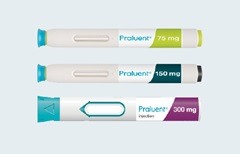Cholesterol
A fatty substance mainly made in the body by the liver. Cholesterol plays an important role in making sure that every cell in the body works as it should. However, too much cholesterol in the blood may mean you are more likely to get heart disease.
HDL-cholesterol
Also called ‘good’ cholesterol. Cholesterol carried by high-density lipoproteins (HDLs) is returned to the liver, preventing it from building up in your arteries.
Heart attack
An emergency caused when the blood supply to the heart becomes blocked by a blood clot and part of the heart doesn’t get any oxygen. A heart attack can be caused by fatty substances from untreated high cholesterol levels which block arteries taking blood to the heart.
Heart disease
Any disorder that affects the heart, such as heart attack or angina.
High cholesterol levels
When you have too much cholesterol in your blood. Having a high cholesterol level means that you are more likely to get other medical conditions such as heart disease and stroke.
LDL-cholesterol
Also called ‘bad’ cholesterol. Cholesterol is carried by low-density lipoproteins (LDLs) from your liver to the cells of your body. If the levels of bad cholesterol are too high, it can build up in your arteries, putting you at risk of heart disease.
Statins
Commonly prescribed medicines used to treat high levels of cholesterol.
Stroke
A condition caused when the blood supply to part of the brain is cut off. A stroke can be caused by fatty substances from untreated high cholesterol levels which block arteries taking blood to the brain.




